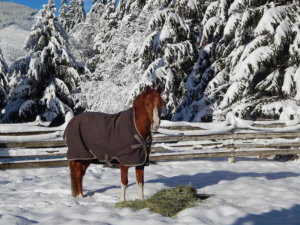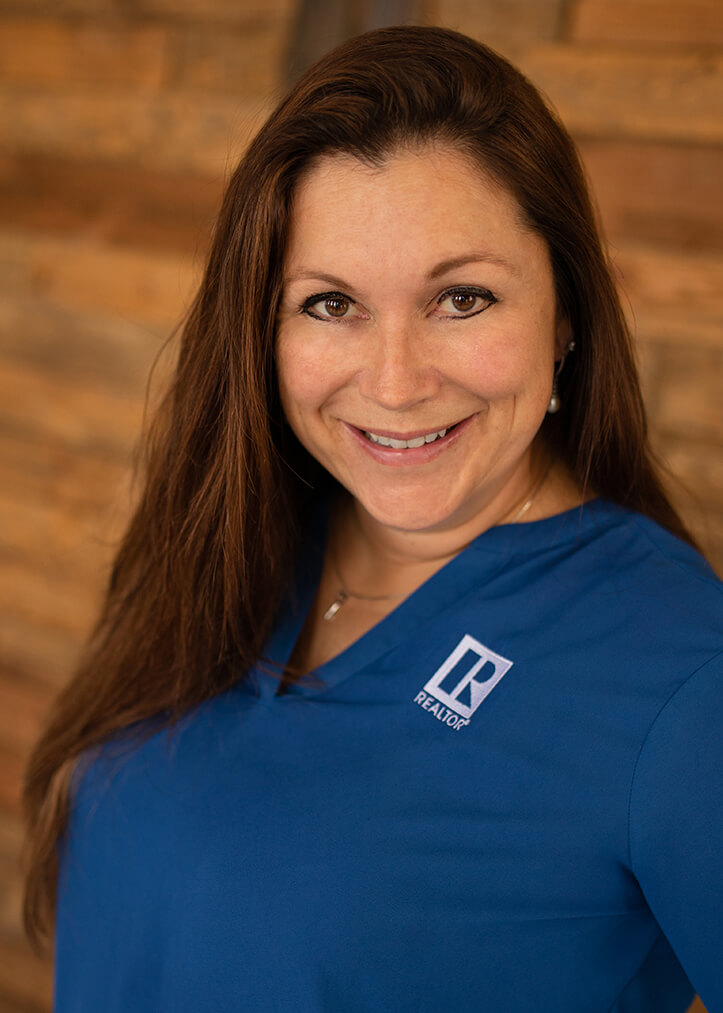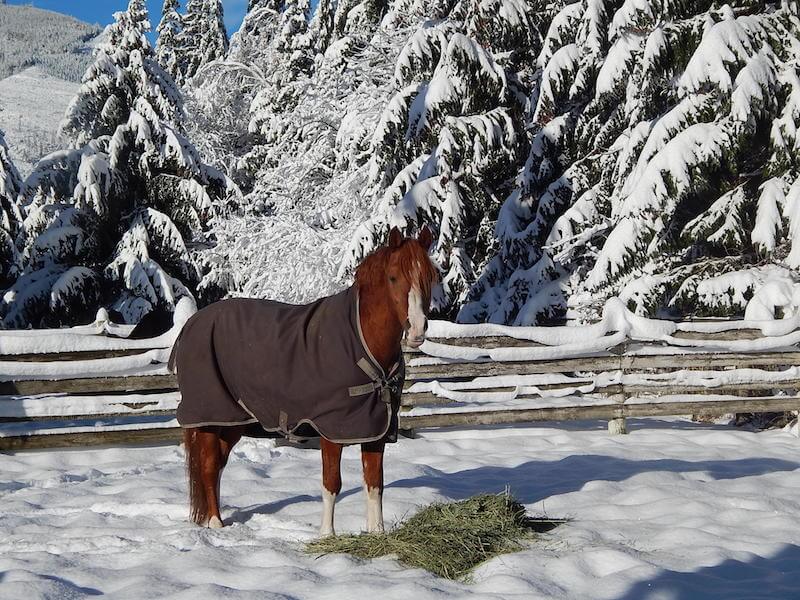Plan Ahead and Be Prepared
By Allison Trimble

I spend all winter cursing the weather and pondering improvements to make before the next winter hits. Spring comes, flowers bloom, fields dry up and grass abounds. There is a moment of euphoria before the reality of weed-eating, mowing, and fence repairs hits. Spring blooms to summer, and somewhere in the time between work and trying to spend quality time with the horses, I just never do get around to getting the tasks done that mid-February I was certain would solve all my winter woes.
After 18 years of doing mostly damage control, this year I vowed it would be different. So starting in late August I began to check things off the list. Below are some things that make my annual checklist.
Roofs and Gutters
I have two separate barns and some shedrows. The second barn and shedrow are pre-fab structures with metal roofs. The main barn is stick built. Last winter, after 20 years, was the first I noticed a few leaks into the barn.
As a Realtor, I can’t tell you how many outbuildings I see deteriorate simply because the roof wasn’t maintained. Water damage can take a structure down in no time.
I requested a bid to have the barn re-roofed with metal, but with the price of metal it was cost prohibitive. Instead, I hired a great handyman to re-roof with the same rolled roofing material as was already on the barn and was able to get it water-tight for a fraction of the cost of a new roof.
The gutters over the last winter had rusted and sagged and needed replacement, so that also made the list. Controlling waterflow is an important management practice, and just this year I learned that our local conservation district offers a $200 rebate for replacing old and damaged gutters. That nearly covered the replacement cost!
Structure Maintenance
The same fantastic pre-fab barns that don’t need roof maintenance also have plywood walls that take a real beating when horses are stalled in the winter. Usually I don’t start thinking about that until horses are in for the winter, and then the repairs are a bit more difficult. This year I am replacing plywood and fixing broken boards before the weather hits.
Last year I tackled the chore of leveling the floors under the mats in all our stalls. This ended up being more challenging than I anticipated. Besides being labor intensive, many of the stall fronts had been installed over the matts, so getting them out and back in tightly was tricky. Moving forward I decided to take on a few stalls each summer, rather than trying to do it all in one whack.
Drainage
This year for our house build we bought an excavator, which offers many benefits for our existing facility. For years, cleaning drainage ditches and making sure water flows away from the barn and turnouts was a constant battle. Each year when the first heavy rain comes I find myself out in the barn with a shovel trying to direct water that is blocked by leaves and buildup from the summer. This year we are clearing out ditches and culverts ahead of time with high hopes that we are ahead of the game.
Sacrifice Areas
In areas where horses are pastured, it’s ideal to have a sacrifice area made of either gravel or hog fuel. This helps to keep horses from damaging the fields when they are saturated. This is the time to make sure there is adequate material to support the horses through the upcoming winter.
Pasture Management
Reseeding and tilling fields keeps pastures healthy. Late summer/early fall is the best time to be tilling and reseeding. Dry summers such as this one make it hard to decide when it is best to till and seed. Seed shouldn’t be laid until there is rain in the forecast, so this year we are hoping to be able to tend to the fields in late September, giving the seed enough time to germinate, grow and establish good roots.
This is also a good time to spread and till last year’s manure into the fields. A fantastic resource for pasture management is a local conservation district. They test soils, determine what the pasture needs, and help make a best-management plan for free. I recently saw that they loaned a friend the use of a manure spreader.
I’m sure there are things that I won’t get done or that I’ll miss, but for the first time I feel better prepared for the long months ahead.

Allison Trimble is a Realtor® specializing in equestrian properties, farm and ranch properties, and residential real estate. She’s a former horse trainer, and a current owner, breeder, and non-pro competitor in cow horse and reining events. For many years, Allison wrote a monthly column for The Northwest Horse Source.
Learn more at www.allisonblakerealestate.com






